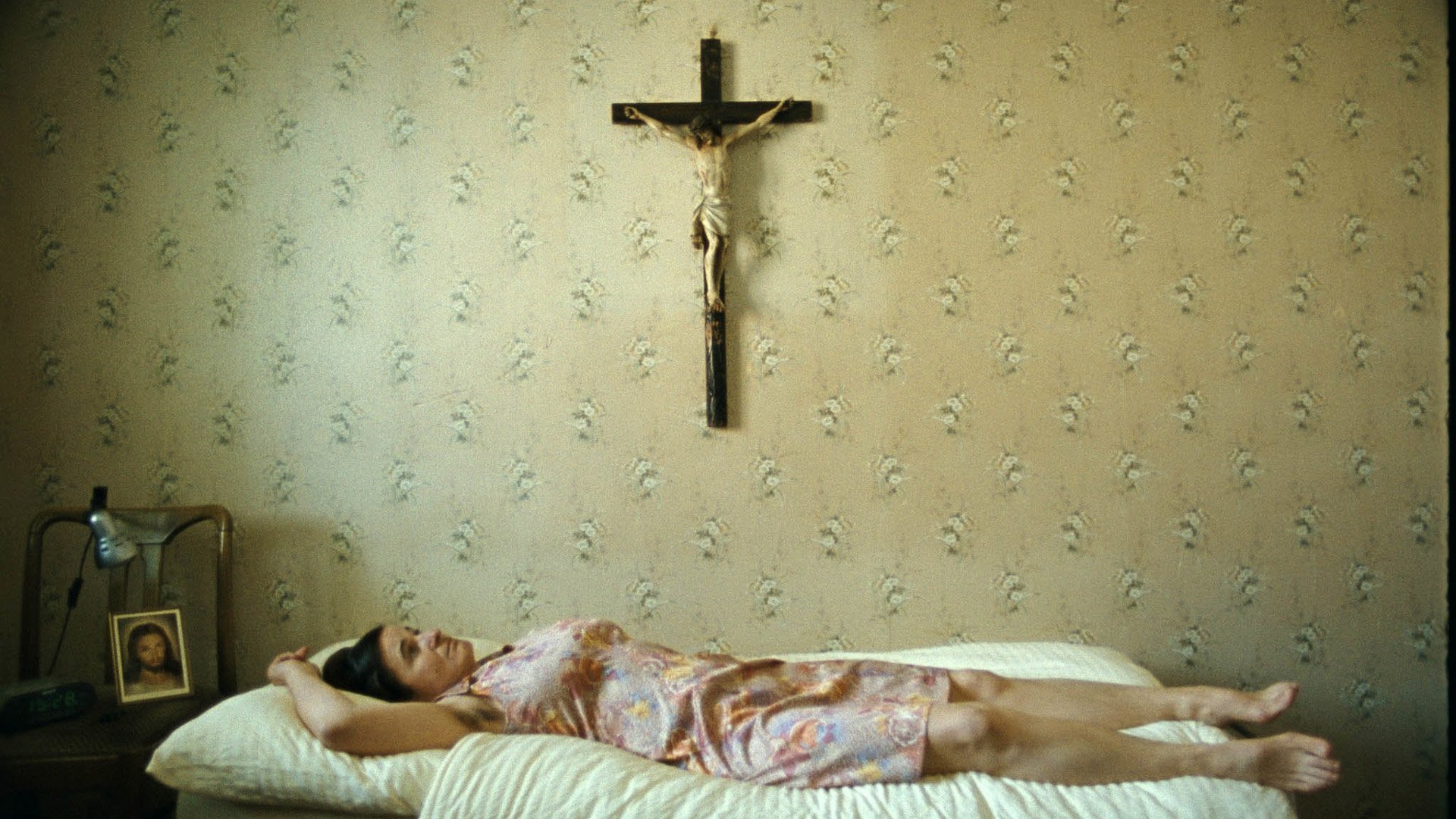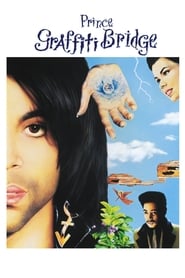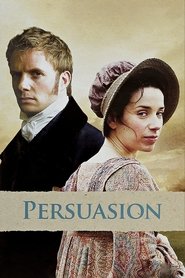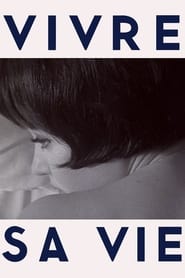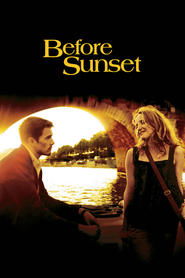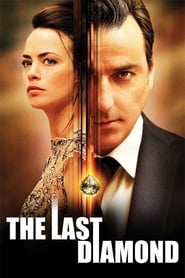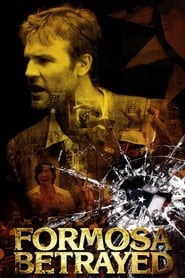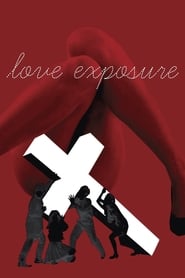
Video Sources 0 Views
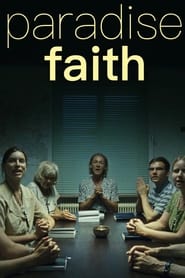
Synopsis
Watch: Paradies: Glaube 2012 123movies, Full Movie Online – A single woman in her 50s devotes her vacations to doing Catholic missionary work in Vienna, descending into violent self-punishment as part of her faith..
Plot: Second film in Ulrich Seidl’s Paradise trilogy. A devout Catholic woman practises her religion at home and in the local community, but is unprepared for the reappearance of her estranged husband, who is a Muslim.
Smart Tags: #muslim #sex_scene #austria #missionary #wheelchair #self_flagellation #faith #catholic #muslim_immigrant #kissing_a_crucifix #female_full_frontal_nudity #evangelical_christianity #catholic_hypocrisy #catholic_guilt #religious_insanity #religious_hypocrisy #religious_statue #religious_differences #religious_intolerance #religious_zealot #religious_nut
Find Alternative – Paradies: Glaube 2012, Streaming Links:
123movies | FMmovies | Putlocker | GoMovies | SolarMovie | Soap2day
Ratings:
Reviews:
Not much Paradise to see here – plenty of Faith, though…
It was Georges-Henri Bousquet who, in 1966, wrote about the sexual ethics of the religion of Islam, and how they differed to that of Christianity when he made, certainly by today’s standards, the controversial point that Islamic marriage has very little to do with love; companionship or association: there is a sense that a woman is a man’s property, and that he is, in actual fact, able to own five of them at once if he wishes. In the same work, entitled “The Sexual Ethics of Islam”, he quotes a Muslim jurist who points out that when a man marries a woman in Islam, he “acquires” her genitals “…with the express purpose of enjoying” them.I read much of this, and more, years ago in Ibn Warraq’s 1995 book “Why I am not a Muslim”, where Bousquet is often cited and it lingered in my mind as Ulrich Seidl’s film “Paradise: Faith” unfolded before me in the unnerving, even ghastly, fashion that it did. If you see it, you’ll know why: it has rather a lot to do with sex; sexuality; relationships; love and how people behave towards one another in respect of these things. Quite a lot of religion is tossed in too.
Its pitch is actually fairly straightforward: a devout Roman Catholic woman and a devout Islamic man are thrust together as housemates in an affluent Austrian neighbourhood. They share a history, in that they were once married, but not much else beyond this – despite being confined to a wheelchair, the Muslim seems to want to rekindle what they had, but she is dead-set on the opposite. Sparks fly. You half expect the crockery to fly with it.
It is to Seidl’s credit that he sustains the atmosphere that he does in the film. Putting it into words is difficult – it isn’t sexual tension, per se; it’s a combination of hatred, pity, fear and the vulnerability that the Catholic of the piece clearly exudes. She is Anna (Maria Hofstätter), middle-aged; a little overweight and certainly unattractive who works as a nurse scanning people for cancer signs. Her time away from work is quite different. Heavily into religion, she crawls around her house on her knees to induce injury and even resorts to self-flagellation before a crucifix on the wall in what is behaviour associated with sharing in Christ’s pain in knowing he died for you. The exasperating edit Seidl employs early on, from Anna’s self-harm at home to state-of-the-art equipment at hospital, is his introducing a sense of the binary to proceedings.
Anna is granted a holiday from work, so takes her downtime to venture out into the wider ethos of Austrian society – spreading her Catholic message, often to migrant communities, in what we learn is an attempt to coerce the new arrivals into Catholicism in order to keep the country on the right religious tract. In an expert move, Seidl releases the tension when an elderly unmarried couple invite her into their living room, and we observe what looks like an actual argument between preacher and atheist on sin. The couple look older than Anna – why couldn’t she convince them? Should they not be more conservative in their old age? It demonstrates just how far Austria is from being Catholic again.
Out of nowhere, an Arab by the name of Nabil (Nabil Saleh) enters her life – he has his own key to the house and we learn they were married, although an accident has since forced him to the confines of a wheelchair. At dinner that very night, they are shot in profile directly opposite one another so inferring there is still a degree of conflict between them. We slowly realise he is a slob; a misogynist and will test Anna’s Catholicism to its zenith – central to the arc of their relationship is whether she can, alá the Catholic message, ‘forgive’ him when it is remarked to her that God will forgive him for following the wrong religion.
The film addresses a variety of different issues, among them human sexuality and religion’s role in modern society, but it does so within the confines of a 113 minute film which depicts a telling piece of watchable drama, all the while borrowing an aesthetic more synonymous with Michael Haneke and not feeling like an essay. In Nabil, the film seems to want to epitomise the dangers of Austria’s Islamification – it appears initially harmless, merely a new arrival which believes in God but does so a little differently, as demonstrated in Nabil’s agreeing with Anna’s wall-mounted charts depicting what it ‘virtuous’ (rising early, praying etc.).
Gradually, we learn it packs a punch – it doesn’t take to being challenged; ultimately, it hates the host culture/religion; despite being a guest, it isn’t afraid of challenging the host, as Nabil demonstrates when he casually pops Anna’s Catholic iconography off her walls. Forgetting Austria is not governed by the Sharia, and remembering Bousquet, he seems to think he has the right to fall back into a sexual relationship with Anna because, of course, women are beneath him in his religion.
In one of the more extraordinary sequences, harrowing and upsetting though it is, Nabil and Anna wrestle on the floor when the situation snaps, but the overwhelming feeling once it’s past and the film has ended is just how pathetic they both looked. We conclude that the film is depicting two people detached from the present – their personal outlooks are irrelevant to wider society, who think nothing of them because incredible technological advances are saving lives in the hospitals; youngsters have sex in public parks after dark and divorce is rife. Society is indifferent to the pair of them, yet paradoxically Islam is incredibly promiscuous and shares common-ground with Catholicism. Anna’s devotion to Christ eventually sees her sexually attracted to him, while Nabil resorts to drinking beer. Is it any wonder nobody can get along if they don’t yet even know themselves?
Review By: johnnyboyz
poor, clichéd, ticked all boxes of a gritty art-house film
We have a loser at the focus of the story and gets humiliated in a variety of different situations. These themselves were constructed to create the classical gritty art-house feel. It feels as if made my a film school graduate who got the assignment to create a collage of gritty situations related to faith. This resulted in a storyline which had no credibility. I’m surprised that this film has received awards at festivals. It was one of the most unoriginal films I’ve seen. This is not only related to the story but also to lighting and general feel. On a positive note the encounters she had with “real” people was well observed but were just three excellent short films. This film reminded me in many places of films made by Peter Mullen and British Social Realism which is repeated over and over again.
Review By: berndporr
Other Information:
Original Title Paradies: Glaube
Release Date 2012-08-29
Release Year 2012
Original Language de
Runtime 1 hr 55 min (115 min)
Budget 0
Revenue 6508
Status Released
Rated Unrated
Genre Drama
Director Ulrich Seidl
Writer Ulrich Seidl, Veronika Franz
Actors Maria Hofstätter, Nabil Saleh, René Rupnik
Country N/A
Awards 6 wins & 5 nominations
Production Company N/A
Website N/A
Technical Information:
Sound Mix Dolby Digital
Aspect Ratio 1.85 : 1
Camera N/A
Laboratory ARRI Film & TV, LISTO Videofilm, Vienna, Austria
Film Length N/A
Negative Format Super 16
Cinematographic Process Digital Intermediate (2K) (master format), Super 16 (source format)
Printed Film Format 35 mm, D-Cinema
Original title Paradies: Glaube
TMDb Rating 6.5 82 votes


